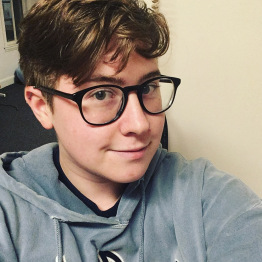Photo Courtesy Of Pixabay on Pexels.com
By Cameron Adelman
A major finding of the research project I have been conducting on the social and emotional correlates of female genital cutting (FGC) is that in communities that are more supportive of FGC, there are more reasons to support the practice. Some reasons in support of FGC include the practice as a coming of age ceremony, being promoted by religious/spiritual/community leaders, and being used to preserve a girl’s virginity and to promote her marriageability. Additionally, women are more likely to suffer social and emotional consequences such as having less social support and more negative feelings surrounding the community’s beliefs.
In my last blog post, I talked about the conception of my research project on risk factors for female genital cutting and social/emotional issues related to the practice, and the divergence of the project from what I had originally envisioned. The majority of my data and the statistical analyses I ran were from the Demographic Health Surveys Program (DHS). The analysis of the DHS data pointed toward a number of social, emotional, and physical issues that appeared to be more common in women who had experienced FGC, as well as a number of beliefs that were more common in women who had experienced FGC, and some socioeconomic factors that appeared to be related. From this information, I was able to go through my own data and select the information that could help support a working theory of increased stress and emotional concerns for women who had experienced FGC. My data was also helpful for establishing a link between community attitudes and social/emotional wellbeing.
My analysis of the data Sahiyo led to a few key findings:
- First, the number of cultural reasons supporting FGC was positively correlated with how supportive a community is of FGC. With a positive correlation, this means that as one factor increases, the other does as well, so the more reasons a participant selected for why FGC was a part of her culture, the more supportive her community was likely to be of FGC.
- Second, the number of cultural reasons for why FGC is practiced was negatively correlated with how the community attitude toward FGC made a participant feel. With a negative correlation, this means that as one factor increases, the other decreases. The more reasons a participant selected for why FGC was a part of her culture, the more negatively she felt about her community’s supportiveness of FGC.
- Third, how supportive a community is of FGC was negatively correlated with how a participant felt about the community attitude, and how many personal sources of support a participant listed that she had available to her.
- Finally, the number of personal sources of support a participant had was positively correlated with how a participant felt about her community’s attitude toward FGC.
Despite the immense help of Sahiyo, I had only 11 participants of my own after sending out a survey to gather data, which was insufficient for a full research paper. This limit is what led me to the DHS. After seeing how significant the findings from the DHS data were it became clear that the best route forward was to take the aspects of my data from Sahiyo members about community attitudes and use that to supplement my findings from DHS.
With my data analysis completed, I’ve begun the work of writing the paper that will hopefully be submitted for publication in a research journal at the end of the semester. The results so far suggest unique challenges to supporting women in communities that still actively promote and support FGC. I hope with the work I have done that it can lead to improved services for women in areas both supportive and unsupportive of female genital cutting.
More on Cameron:
 Cameron Adelman is a senior neuroscience major and women and gender studies minor at Wheaton College in Massachusetts. He has been working on his research project about social and emotional effects of FGC since last year. The findings of his research among women who have experienced FGC suggest a number of sociocultural confounds in trying to develop and deliver support systems for women living in practicing communities. Cameron’s hope is to help advise best practices that take these factors, as well as additional risks to wellbeing, into account.
Cameron Adelman is a senior neuroscience major and women and gender studies minor at Wheaton College in Massachusetts. He has been working on his research project about social and emotional effects of FGC since last year. The findings of his research among women who have experienced FGC suggest a number of sociocultural confounds in trying to develop and deliver support systems for women living in practicing communities. Cameron’s hope is to help advise best practices that take these factors, as well as additional risks to wellbeing, into account.

